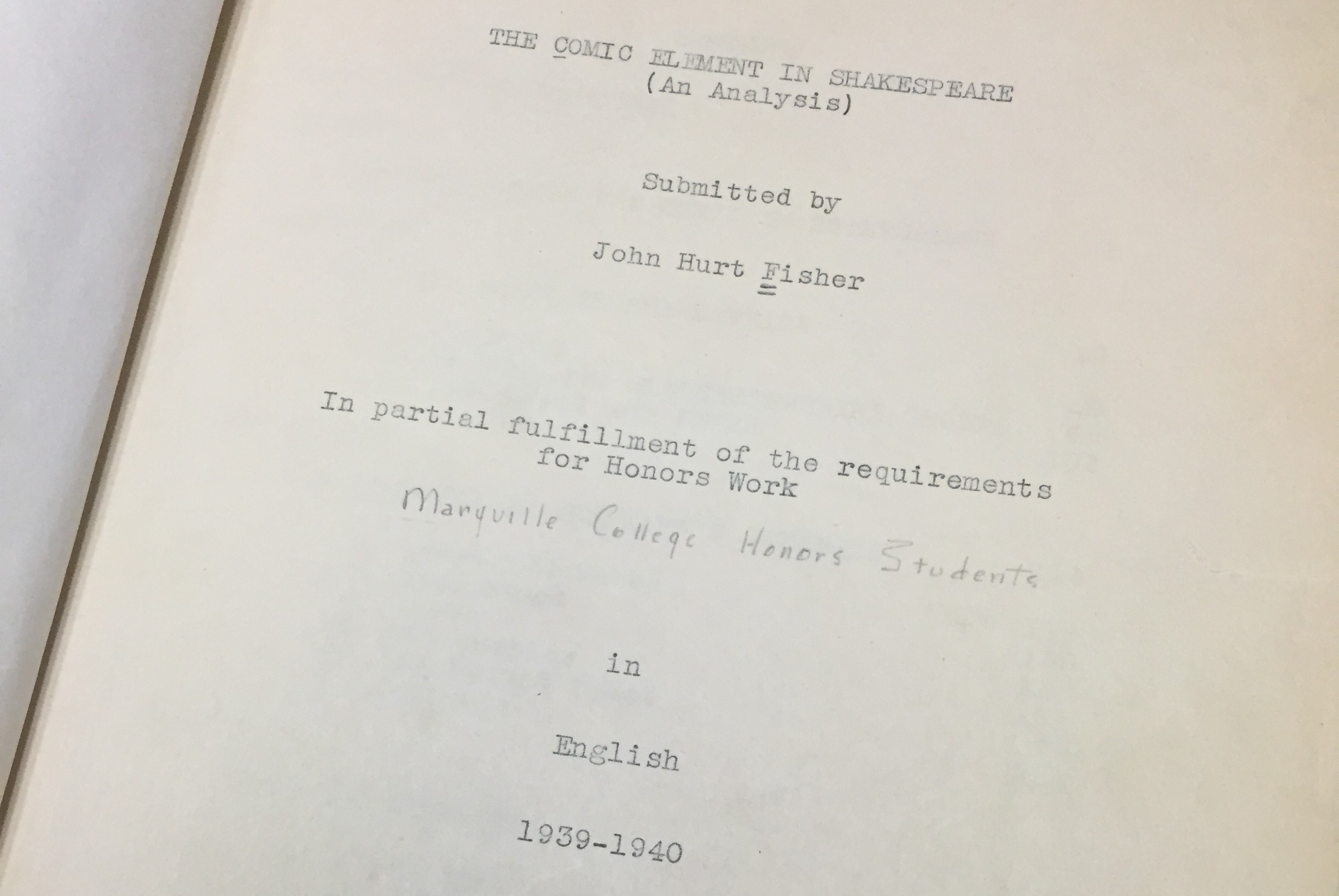Maryville College remembers Jonathan Hurt Fisher
Maryville College remembers Jonathan Hurt Fisher
by Evelyn Linkous
Among the list of Maryville College’s notable alumni are a Harvard professor, a geologist, a professional golfer, a CEO for Johnson and Johnson, and a U.S. representative, just to name a few. Though his name may not pull up in Google searches for MC alumni, former MC student Jonathan Hurt Fisher could well be included in this prestigious list.
About a month ago, on Feb. 17, Fisher passed away at the age of 95. However, his impact at MC lives on. During his lifetime, Fisher was a prominent medieval literature scholar with specializations in Geoffrey Chaucer and the poet John Gower. As a result, the International John Gower Society has named an award in his honor. The award is listed as “the Society’s highest honor” and is awarded to someone who has made significant contributions to Gower studies.
In addition to his studies, Fisher built an impressive career an English professor. He taught at New York University, Duke University, Indiana University, The University of Texas San Antonio and the University of Tennessee, where he was head of the English Department for a time. Before his retirement, Fisher spent a total of 50 years in the field of education.
However, before becoming a notable professor and scholar, Fisher spent his childhood in Iran, where his parents were missionaries for many years. For college, Fisher chose to return to the U.S. and attend Maryville College, his parents’ alma mater.
Relics from Fisher’s time at MC can still be found. During his freshman year, a 1937 edition of the Highland Echo published a story about Fisher and his time in Iran.
“I come from a land where it never rains,” remarked Fisher in the first sentence of the article.
Fisher goes on to explain differences between life in Persia and life at MC: “I had seen only three girls’ faces before I came to Maryville. The girls all wear veils in Persia and never show their faces except to their husbands.”
In addition to multiple mentions in the Highland Echo, current students can find Fisher’s thesis, titled “The Comic Element in Shakespeare: An Analysis,” in the library amongst many other exemplary theses. His can be distinguished by its sheer size. At about 293 pages, Fisher’s thesis is one of the largest on the shelves.
Though Fisher’s time at MC was long before those here today, he has left a lasting impact on students and faculty at the college. Dr. Sam Overstreet, English professor and chair of the Languages & Literature division at MC, says he was acquainted with Fisher and that his scholarly work was useful in his own English studies.
“John Fisher was an alumnus eminently distinguished in scholarship, whose career the college is proud to have launched. . . .During Fisher’s time at the University of Tennessee, his scholarship in the editing of Chaucer’s works built up the UTK library in resources in medieval paleography (handwriting in manuscripts) that have been useful in my own scholarship,” Overstreet said. “He once lectured to my Chaucer class on the topic of Chaucer’s language. So in ways both direct and indirect, his example and his work have had a lasting benefit for students here at the college.”
While Fisher’s name may not grace the MC history books, it is safe to say that he is one of the college’s many distinguished alumni. Fisher’s legacy at MC and amongst English scholars will continue on despite his passing.

